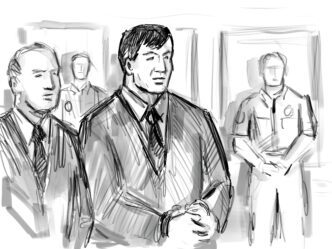In response to the tragic Champlain Towers South collapse in Surfside, Florida, new regulations are set to increase costs for condominium owners across the state. Signed into law by Governor Ron DeSantis, these measures demand condo associations maintain sufficient reserves for major repairs and conduct decennial reserve surveys.
The law, primarily affecting older buildings in South Florida, mandates associations of condos with three or more stories to submit inspection reports focusing on structural integrity, maintenance needs, and projected repair costs by December 31st. These requirements are part of a broader response to Florida’s ongoing condo and property insurance crisis, where the state’s average homeowner insurance premium is notably higher than the national average.
Kelli Roiter, a condo owner in Hallandale Beach, expressed her support for reserve maintenance requirements despite the financial burden. Living a short distance from the site of the Champlain Towers South tragedy, she feels the pressure of ensuring her 1971 oceanfront building receives necessary repairs. She admitted living in fear of her building’s stability, emphasizing the importance of these regulations.
Rick Madan from the Biscayne Neighborhoods Association criticized the legislation, stating it imposes uniform solutions regardless of a building’s age or condition, burdening condo owners with fixed incomes. Madan highlighted the lack of flexibility concerning insurance companies, which he believes unfairly profit without bearing actual risk.
State Senator Jason Pizzo, who represented the Surfside area during the collapse, supported Madan’s concerns regarding property insurance issues. He stressed the necessity for transparency in condo associations about repairs and related expenditures, warning that costs should not be conflated with amenities. Pizzo underscored the need for objective inspections, considering that most Florida condos are over 30 years old and have not undergone crucial inspections.
Attorney Luis Konski pointed out that previous regulations allowed associations to keep fees low without saving for future repairs, leading to sudden financial shocks when associations face inevitable upkeep. Without proper enforcement and oversight, Konski warned that associations might continue deferring maintenance, risking further disasters. He questioned whether the state possesses adequate resources to ensure compliance with the new law.
Real estate professional Rebeca Castellon acknowledged the financial strain these regulations could cause but agreed with the need for maintaining repair reserves. Despite market cooldowns due to fee increases and new rules, Castellon argued that condos remain an affordable homeownership option, offering prospective buyers greater insight through required structural inspections.
Gatien Salaun, another real estate agent, observed that market dynamics are shifting, with buyers increasingly negotiating costs that reflect financial burdens from future assessments. He noted that sellers often face tough decisions about adjusting prices or absorbing costs themselves.
The new Florida regulations represent a significant shift in condominium management, aiming to bolster the safety and financial preparedness of condo associations. However, they also bring financial challenges for owners. As the state navigates the balance between ensuring safety and managing economic impacts, the focus remains on preventing tragedies akin to the Surfside collapse.
Source: Nbcmiami








